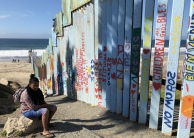|
From Interstate - Journal of International Affairs VOL. 2013/2014 NO. 1 International Cooperation in Combating Threats to Maritime Security: Global Maritime Security and International Law
It may be said that a cooperative international law based on a community of interests has developed in the field of crime prevention and punishment.
Luc Reydams, Universal Jurisdiction: International and Municipal Legal Perspectives (2003)1
IT is important to note th at the duty to cooperate, despite at times having been called a fundamental principle of international law2 has not been adequately defined.3 An expansive interpretation would be 'the duty to reach an agreement', which would thus be breached if states fail to agree on a matter.4 A more restrictive interpretation would limit this du ty to the obligation to negotiate an agreement in good faith.5
Regardless of this debate, there is certainly evidence of some kind of duty to cooper ate under international law. Two of the purposes of the United Nations (UN ) mentioned in The Charter are to maintain international peace and security through collective action, and to achieve international cooperation in solving problems of an economic, social, cultural, or humanitarian character.6 A 1970 UN General Assembly resolution recommends the codification of the duty to cooperate in accordance with the Charter and goes on to specify that this includes cooperation in the maintenance of international peace and security.7 Since then, several Security Council Resolutions have imposed duties to cooperate in the fight against global terrorism and Weapons of Mass Destruction (WMD) proliferation,8 supporting the hypothesis of a more general duty to cooperate in the field of global security.
No one can deny that in the light of the jurisdictional difficulties caused by the different maritime zones and the alrnost intrinsically transnational character of maritime threats, there is a pressing need for an extensive form of cooperation in this field.9 However, has this need led to a duty to cooperate that goes beyond the doctrine of good faith? This piece will look for evidence of such a duty in the different international law instruments dealing with the most urgent threats to maritime security today.
Ports are essential to the world economy as well as the national economy of states due to increased global trade. Simultaneously , however , seaports are regarded as vulnerable to threats due to the huge amount of incoming traffic that they need to control International cooperation and coordination is crucial to ensure security in port areas. Globalisation has made information exchange easier and this facilitates increased cooperation between states. The information-based society also has its negative sides. Terrorists and smugglers can receive information more freely, which entails a system to protect delicate information.
After the September 11th attacks, the United States initiated a revision of the international instruments available to fight threats against port security.10 In January 2002 the International Maritime Organization (IMO) assembly adopted a resolution11 requesting a review of the different instruments with the aim of increasing maritime security. Amendments were made to the Safety Of Life at Sea (SOLAS) convention, including the introduction of a new chapter XI-2, with the purpose of detecting and taking preventive measures against threats to maritime security. Ports and ships used for international trade were specifically affected.12 Furthermore, the International Ship and Port Facility Security (ISPS) Code13 was implemented through the amendments of the SOLAS convention to increase the international cooperation within an international framework realising, among other things, an increased exchange of intelligence information and standardising methods and technical requirements for ships.14 The international cooperation has afforded better knowledge about threatening situations at sea before ships reach ports, making it possible to prevent threats to a wider extent Not only has the possibility to prevent crimes increased, the focus on security in ports has also intensified. For example, every contracting party to the SOLAS convention now has an obligation to conduct measures to ensure security in the ports, including ensuring security around critical infrastructure and structures or areas which would cause loss of life or great economic losses if damaged.15
However, the cooperation framework under the ISPS code can be criticised for not taking developing countries ' needs into account The maritime threats against developing countries have a different character. The in-port security is in many ways more lax, which makes these ports more exposed to thefts and similar kinds of threats against maritime security. In the long run, this makes ports in developing countries less desirable for international trade, which in turn could limit development in these countries.
There have been other initiatives for increasing port security. The Container Security Initiative (CSI) for instance, is a US-led initiative focused on freight containers. The system prevents maritime threats through screening of containers in the port of departure. Information about the goods carried by the ship can consequently be acknowledged before reaching the port of destination, often an American port, and be granted entrance into the state of destination more quickly. The system is reciprocal but is mainly used to ensure security in American ports.16
It can be said that the ISPS code validates Reydam's statement of a cooperative international law developing as far as port security is concerned. As shown, there has been development in this area over the recent years. Preventing threats to port security is important and international cooperation has proven to be vital. The current system is not perfect, there are many deficiencies, which, among other things, the critique against the ISPS code obviously shows. Furthermore, the CSI programme is far from perfect in its ambition to prevent threats to port security. It would be desirable if more states used the system, making it a sincerely reciprocal system. Although the current framework for preventing threats to port security is far from perfect, it creates possibilities for increased international cooperation .
Drug smuggling via the sea is one of the principal ways in which criminal groups traffic drugs. Since this criminal activity has emerged, its complexity and capacity has continued to expand. resulting with difficulties in controlling the smuggling of illegal substances. The smuggling operation is efficient and very well organised. It is estimated that large numbers of containers carry drugs every year and are transported on container vessels.17 This shows there is a problem with identifying containers carrying drugs, and consequently preventing the passage of illicit substances. The unauthorized trade of drugs has led to the consent that international cooperation is needed to combat this crime. The UN Convention18 Against the Illicit Traffic of Narcotic Drugs and Psychotropic Substances is a major source of law preventing drug smuggling. The purpose of the convention appears in article 2, promoting cooperation among parties so that they may address the var ious aspects of illicit traffic more effectively. The scope of this cooperation is defined in article 17, emphasising cooperation to the fullest extent possible in order to suppress illicit traffic by sea. The article was implemented in an agreement by the Council of European Union19 in 2005. In addition to the Convention there are various resolutions and circulars by the IMO focusing on the threat of drug smuggling. Furthermore there are regional agreements with the aim of preventing the smuggling of drugs, for example the Caribbean Regional Maritime Agreement based on the Vienna Convention. The agreements cover ship-riding, ship-boarding, pursuit and the cooperation on maritime enforcement. This development has unfortunately not progressed in the same way in South East Asia.20 Yet, it can be concluded that cooperation in the field of drug smuggling and international law based on the community of interests to combat the threat has indeed developed.
In The Tampa incident, a ship flying under the Norwegian flag rescued 438 irregular immigrants in the Indian Ocean in 2001.21 The ship was refused entry into Australian territorial waters, despite the migrants ' needs. This triggered a diplomatic dispute between Australia and Norway. The captain of the Norwegian ship proceeded to enter Australian waters. Eventually, the asylum seekers were taken to various islands instead of Australia, where their refugee status was assessed. The difficult situation that arose regarding the disembarkation of the rescued persons clearly demonstrates the difference in character the transnational crime of migrant smuggling has compared to other crimes. When states are using interception as a means of averting threats, human rights cannot be ignored International law requires that this specific threat is dealt with in accordance with the human rights regime regardless of the status of these persons.
The United Nations Convention on the Law of the Sea22 does not address the threat of migrant smuggling in any specific way, besides being a reason for regarding the passing of a vessel as non-innocent, thus giving the coastal state the right to refuse the entry of the vessel into territorial waters.23 It is also possible for a state to regulate the innocent passage of a vessel to prevent the infringement of the state's immigration laws.24
The smuggling protocol, supplementing the UN Convention Against Transnational Crime, is specifically aimed at combating migrant smuggling with regards to the protection of the people subject to the crime, rather than focusing on state security.25 The crime is defined in article 3 a) as;
'the procurement, in order to obtain, directly or indirectly, a financial or other material benefit, of the illegal entry of a person into a State Party of which the person is not a national or a permanent resident'
The smuggled persons are not themselves criminalised unless they took part in the smuggling.26 All state parties are obliged to criminalise the offence under national law.27 The protocol recognizes the transnational nature of the crime as well as the link to organized criminal groups.28 Trafficking is a crime that in some cases overlaps with migrant smuggling as it includes the transport of persons which can include illegal entry.29
The duty to rescue a vessel in distress is an individual obligation of the ship-master imposed by international law.30The International Convention on Maritime Search and Rescue31 provides for a framework in which rescue operations must be coordinated when a vessel is in distress.32 V\Then the vessel in question carries irregular migrants with the aim of crossing borders, the rescue operation is complicated by states ' unwillingness to allow disembarkation of the rescued persons in their territory. The duty of coordination, noted above, also includes the requirement of dis-embarkation to a place of safety for those rescued.33 There is no obligation of the SAR state responsible for the coordination of the rescue operation to disembark the persons rescued. However, the SAR state has a primary responsibility to make sure that a place of safety is provided, and when states fail to cooperate, the SAR state often ends up disembarking.
Interdiction at sea of vessels carrying irregular immigrants is within the rights of the sovereign state according to the United Nations- Conventions on the Law of the Sea (UNCLOS). This has, however, been criticized because there is a potential violation of human rights when this is done without determining the status of the persons onboard the vessels. According to the principle of non-refoulement stated in article 33(1) the Refugee Convention, no state is-allowed to return a person with refugee status to a territory where they would face persecution.34
The state s- targeted by migrant smugglers as the destination of embarkation want to avert this threat;35 therefore interdiction often occurs in the high seas. The arrest and prosecution of the perpetrators is consequently reserved for the flag state of the vessel as it has exclusive jurisdiction. It must be determined that the vessel is lacking nationality , or can be assimilated as to lacking nationality in order for the coastal state to exercise jurisdiction. The smuggling protocol provides for the mechanism to request confirmation by the flag state of the nationality of the vessel, as well as receiving authorization to take 'appropriate measures' if it is suspected that the vessel is engaged in migrant smuggling.36 The claimed flag state must respond expediently, but if no response or authorization is received the coastal state cannot act. Bilateral treaties can be used to facilitate the arrest of the smugglers- as in the case with the US and the Bahamas where international cooperation can be more effective.37
The fact that both Australia and the US are still using interdiction/interception as- a tool to avert the threat of migrant smuggling38 demonstrates the lack of international cooperation needed to ensure that the smugglers are being held responsible. Despite this, the safety of migrants and human rights must be adhered to. Australia has-, through legislation, made it impossible for people coming by sea to certain islands within Australian territory to make asylum claims in the same way as people arriving in other ways to the mainland.
Italy's agreement with Libya concluded in 2008 is an example of international cooperation to avert the "threat" of migrant smuggling without an extensive regard to human rights.39 The Italian state justifies its actions of turning around boats coming from Libya, without determining the status of the passengers, with state sovereignty and security, thus ignoring the critique that the substance of the agreement violates human rights . The situation with Italy and Libya is an example of externalization of Italian borders- as some asylum claims can be made in Lampedusa. In this way the state of Italy actually exercises jurisdictional control in areas where it does not have jurisdictional responsibilities.
The EU has acceded the UN Convention Against Transnational Organized Crime and its protocols and the smuggling protocol consequently requires the member states to ratify it.40 The European Agency for the Management of Operational Cooperation at the External Borders of the Member States of the European Union (FRONTEX)41 has the power to perform border checks and surveillance within the common internal borders established by the Schengen Agreement, including sea fronts.42 The operations shall according to the regulation respect the international law of the sea as well as the non-refoulement obligation.43 The European Commission has also acknowledged the need for cooperation between member states in regards to the disembarkation of rescued immigrants and respecting human rights when intercepting vessels.44 Due to the Dublin Regulation the member state which is the first point of entry for an irregular migrant is responsible for processing any asylum claim.45 This taken together with the sharing of information under the Schengen Agreement has led to the situation where immigrants continuing through Europe are sent back to the state where the external border was crossed, and countries such as Poland, Hungary, Italy and Greece end up facing the pressure of migrant smuggling themselves.46
Some trends of non-cooperation and focus on state sovereignty have survived in this area. If states do not cooperate effectively in the procedure of finding a safe place to disembark rescued persons, individual shipmasters might ignore their duty to rescue.47Continued on Next Page »
Legislation
Charter of the United Nations24th October -1 UNTS XVI 1945.
International Convention for The Safety of Life at Sea - SOLAS 1974.
International Ship and Port Facility Security Code - The ISPS Code 2004.
The United Nations Convention against illicit traffic in narcotic drugs and psychotropic substances - 1988.
The United Nations Convention on the Law of the Sea - UNCLOS 1982.
Protocol against the Smuggling of Migrants by Land, Sea and Air supplementing the United Nations Convention against Transnational Crime - 2004.
Protocol to Prevent , Suppress and Punish Trafficking in Persons, especially Women and Children supplementing the Unit ed Nations Convention against Transnational Crime - 2000.
The Convention of High Seas - 1958.
The International Convention on Maritime Search and Rescue - The SAR Convention 2004.
European Convention on Hum.an Rights - 1950.
The Convention for the Suppression ofUnlawfulActs Against the Safety of Maritim e Navigation- SUA Convention 1988.
The Hague Convention for the Suppression of Unlawful Seizure of Aircraft - 1970.
Montreal Convention for the Suppression of Unlawful acts against the Safety of Civil Aviation - 1971.
The Convention Relating to the Status of Refugees - 1951, with supplementing protocol of 1967.
Agreements
Council of The European Union agreement on illicit traffic by sea - 2005.
Agreement concerning cooperation in maritime law enforcement signed at Nassau - 2004.
Agreement between the US and the Bahamas - 2004 Aruba agreement.
Caribbean Regional Maritime Agreement - 2003.
Agreement between Denmark and the UK- 2000 Schengen agreement
The Regional Cooperation Agreement on Combating Piracy and Armed Robbery against ships in Asia -2004 RECAAP.
Resolutions
IMO Assembly Resolution A.924(22).
International Maritime Organisation Resolution MSC.167(78): Guidelines on the Treatment of Persons Rescued At Sea 2004.
Security Council Resolution 13 73.
Security Council Resolution 1526.
Security Council Resolution 1540.
Security Council Resolution 1838.
Security Council Resolution 1846.
Security Council Resolution I 85 I.
SecurityCouncil Resolution 1897.
Security Council Resolution 1918.
Security Council Resolutions 1816.
The UN General Assembly Resolution 63/1 II: Oceans and tbe Law of the sea 2008.
UN General Assembly Resolution 2625(:XXV): Declaration. on Principles of International Law Concerning Friendly Relations and Cooperation among States 1970.
EC Regulations
Art 10, Regulation (EC) 343/2003.
Art 6, Regulation (EC) 863/2007.
European Commission Documents
Commission Staff Working Document: Study on the international law instruments in relation to illegal immigration by sea. Commission staff working document'. SEC Document, published 15 March 2007, pp. 4- 6.
United Nations Documents
United Nations, Maritime Seazrity: Elements of an analytical framework for compliance measurement and rislc assessment (London and Geneva, United Nations, 2006).
UNHCR Excom: "Protection Safeguards in Interception Measures", conclusion no 97 (LIV) 2003.
International Documents
International Maritime Organization ( online), 'Piracy and armed robbery agJinst ships'. Available at: http:/lwww.imo.org/OurWork/Security/PiracyArmedRobbery/Pages/Defa ult.aspx (Accessed 5 December 2010).
Intern ational Maritime Organisation, 'Djibouto Code of Conduct. Available at: http:/ /www.imo.org/ Our Wark/Security /PIU /Pages/DCoC.aspx ( Accessed 5 December 2010).
IMO Maritime Safety Committee 75. Session: 15.-24. May 200.
Official Journals of the European Union
OJ 22.09.2000.
OJ L 262 22/09/2006.
Cases
ITLOS 1999 Southern Bluefin Tuna Cases (New Zealand vs. Japan ; Australia vs. Japan).
ITLOS 2001 MOX Plant Case (Ireland vs. United Kingdom).
PCIJ 1931 Railway Traffic Case (Lithuania vs. Poland); 1957 Lanoux Arbitration Case(Spain vs. France).
Analytical Publications
Allen, C.H., Maritime counterproliferation operations and the rule oflaw (Westport, Praeger Publishers, 2007).
Constantinople, G. R. 'Towards a new definition of piracy: the Achille Lauro incident', In Virginia Journal of International Law 26 (1986). pp. 723-753.
Dickinson, E. D. 'Is the crime of piracy obsolete?' In Harvard Law Review 38 (1925). pp.334-351.
Glennon, M 'Italy-Libya Connection', published at Human Rights Watch (online), 23 September 2009. Available at http :/lwww.hrw.org/news/2009/09/23/ita ly:-libya-connection (Accessed 25 June 2012).
Gooding, G. 'Fighting Terrorism in the 1980s: The Int erception of the AchilleLauro Hijackers'. In Yale Journal ofinternational Law 12 (1987). pp. 158-179.
Halberstam, M. 'Terro rism on the High Seas: The AchilleLauro, Piracy and the IMO Convention on Maritime Safety', In The American Journal of Int ernational Law82 (1988). pp. 269-310.
Martin, T. A. 'Drawing Lines in the Sea'. In U.S. Naval Institute Proceedings, 134.12 (December 2008).
McGinley, G. P. 'The AchilleLauro Affair - Implications for Int ernational Law', in Tennessee Law Review52 (1985).
McNichola s, M. Maritime Security- An Introduction (Burlington, Oxford, Elsevier, 2008).
Robert C. Beckman, 'T he 1988 SUA Convention and 2005 Protocol: Tools to Combat Piracy, Armed Robbery, and Maritime Terrorism ' in Rupert Herbert-Burns and others (eds), Iloyd 's MIU Handbook of Maritime Security (Florida , Auerbac h, 2008).
Tauman, J.E. 'RescuedatSea, ButNowhere to Go: The Cloudy Legal Waters of the Tampa Crisis'. In Pacific Rim Law and Policy Journal, 11. 2 (January 2003). pp. 461-496.
Tolley, W. K. Maritime Safety; Security and Piracy (London, Informa Publishing, 2008).
Van Selm, J. and Cooper, B. The new boat people: Ensuring Safety and Determining Status(Report of the Migration Policyinstitute, 2005).
Xu Ke, 'Myth and Reality: The Rise and Fall of Contemporary Maritime Piracy in the South China Sea'. In Shicun Wu and KeyuanZou (eds), Maritime Security in the South Chin.a Sea (Farnham, Ashgate, 2009). pp.30 -50.
Websites
Australasi an Legallnformation Institut e A Joint Facility of UTS and UNSW Faculties of Law ( online), 'Victorian Council for Civil Liberties Incorporated v Minister for Immigration & Multicultural Affairs ( & summary) [20011 FCA 1297 (11 September 2001). Available at: http: //www.austlii.edu.au /au /cases/cth / federal ct/2001/1297.html (Accessedat25 June 2012).
Drug Enforment Adminstration (DEA) Museum & Visitors Center (online), 'DEA on the Sea'. Available at: http ://www.deam useum.orwa ls/sea.htm l (Accessed 25 June 2012).
International Marintime Organization ( online). 'Piracy and armed robbery against ships'. Available at http:/lwww.imo.org/OurWork/Security/PiracyArmedRobbery/Pages/Defa ult.aspx (Accessed 5 December 2010).
International Marintime Organization ( online). 'Reports on piracy and armed robbery'. Available at: http ://www.imo.or g/OurWork /Security/PiracyArmedRobbery/Pages /Defa ult.aspx (Accessed 5 December 2010).
InternationalMarintime Organization (online). 'Djibouyi Code of Conduct' . Available at: http: //www.imo.org /OurW ork /Security/PIU /Pages/DCoC.aspx (Accessed 5 December 2010).
Ministry of Foreign Affairs in Japan ( online), 'Regional Cooperation Agreement on Combating Piracy and Armed Robbery against Ships in Asia'. Available at http :/lwww .mofa.go.jp:(mofaj/gaik o/ka iyo/p dfs/kyotei s.pdf (Accessed at 12 June 2012).
Nikitin, M. B. 'Proliferation Security Initiative (PSI)'. CRS Report for Congress Prepared for Members and Committees of Congress, 15 June 2012. Available at: http ://www.fas.org/sgp/crs/nuke /RL34327.pdf (Accessed4 December 2010).
TraveLState.Gov. A Service of the Bureau of Consular Affairs U.S. Department of State, 'International Maritime Piracy'. Available at: http: //t raveLstate .gov/travel/cis pa tw/ piracylpiracy 4420.html . (Accessed 5 December 2010).
U.S. Department of State Diplomacy in Action ( online). 'Proliferation Security Initiative: Statement of Interdiction Principles', 4 September 2003. Available at: http ://www .state .guv/t/isn/c2 7726.htm (Accessed 4 December 2010).
UNHCR The United Nations Refugee Agency (online). 'Ten Point Plan of action for refugee protection and mixed migration for countries along the Eastern and South Eastern borders of European Union member states'. 29 June 2007. Available at: http://www.unhcr.org/4688b4af2 .html (Accessed 12 January2011).
Xiang, L. W. 'Regional Cooperation Key to Curbing Piracy'. A siaone News (online), 30 April 2010. Available at: http://www.a siaone.com/N ews/ AsiaOne +News/Singapo re/Story/ AlStory:2 0100430 -213291.htrnl (Accessed 5 December 2010).
Endnotes
- Reydams, L. Uni versal Jurisdiction: Int ernation al and Mu ni cipal Legal Perspecti ves (Oxfor d, Oxford University Press, 2003).
- ITLOS 2001 MOX Plan t Case (Ireland vs. Unit ed Kingdo m).
- Allen, C. H., lvfari tim e coun terpro liferation operatio ns and the rule of law (Westpo rt, Praeg er Publi shers, 2007) , p. 107.
- ITLOS 1999 Sout hern Bluefin Tuna Cases (N ew Zealand vs. Japan; Austr alia vs. Japan).
- PCIJ 1931 Railway Traffic Case (Lithuania vs. Poland) ; 1957 Lan.oux.Arbitr ati on Case (Spain vs. France).
- Articlel Chart er of the United Nations.
- UN General Assembly Resolution 2625 (XXV): Declaration on Principles of International Law Concerning Friendly Relatio ns and Cooperatio n amon g States.
- Security Council Resolutions 1373, 1526, 1540.
- TI1e UN General Assembl y explicitly recogn izes this need in Resolution 63/111 para . 61.
- McNicholas, M. Maritime Security - An Introduction (Burlington, Oxford, Elsevier, 2008), p. 89f.
- IMO Resolution A.924(22).
- 2004 amendments to the Convention on Safety of Life at Sea 1974, especially chapter XI-2.
- IMO International Ship & Port Facility Security Code.
- United Nations, Maritime Security: Elements ofan analytical framework for compliance measur ement and risk assessm ent(Lorrdon and Geneva, United Natio ns, 2006). p. 3.
- The ISPS Code sect. 15 and McNichola s, M. Maritim e Security - An Introduction (Burlington and Oxford, Elsevier, 2008), p. 109f.
- McNicholas , M. 1'1.aritime Security-An Introduction (Burlington, Oxford , Elsevier, 2008), p. 126f.
- See Drug EnformentAdminstration (DEA) Museum &Visitors Center (online), 'DEA on the Sea'. Available at: http://ww, v.deamu seum.or ~/als/sea.htm l (Accessed 25 June 2012).
- The Uni ted Nations Conventi on again st illicit traffic in. narcoti c drugs and psychotropic sub stan ces (The Vienna Convention), 1988.
- Council of European Union's agreement on illicit traffic by sea in 2005.
- Martin, T. A. 'Drawing Lines in the Sea'. In U.S. Naval Insti tute Proceedings , 134.12 (December 2008)
- Tauman , f. E. 'Rescued at Sea, But Nowhere to Go: The Cloudy Legal Waters of the Tampa Crisis' . InPacifi.c Rim Law an.d Policy Journal, 11. 2 (January 2003). Australasian Legal Information Institute A Joint Facility of UTS and UNSW Faculties of Law ( on line), 'Victorian Council for Civil Liberties In corporated v Minister for Immigration & Multi cultural Affairs ( & summary) [2001] FCA 1297 (11 September 200 I). Available at: http ://www.austlii .edu .au/au/cases/cth /feder al ct /2001/1297.htrnl (Accessed at 25 June 2012).
- The United Nation s Conventi on on the Law of th e Sea - UNCLOS 1982.
- UNCLOS art 19.2 (g).
- Art 21 UNCLOS.
- Protocol against the Smuggling of Migrants by Land , Sea and Air supplementing the United Nations Convention against Transnational Crime, signed in Palermo enter ed into forced in 2004.
- Art 5 and art 6 the Smuggling Proto col.
- Art 6 the Smuggling Protocol.
- Art 4 the Smuggling Protocol.
- Art 3 Protocol to Prevent, Suppress and Punish Trafficking in Persons, especially Women and Children supplementing the Unit ed Nation s Convention again st Transnational Crime.
- UNCLOS art 98, art 12111e Convention on High Seas 1958.
- The Inte rn ational Convention on Maritim e Search and Rescue 'th e SAR Con vention'.
- Inter nati onal Conven tion on Maritime Search and Rescu e, 1979, amend ed in 2004.
- The amendments to the SOLAS convention.
- The 1951 Convention Relating to the Status of Refugees, with rnpplementin g protocol from 1967, see also art. 3 The European Convention on Human rights.
- States see illegal entry as a major threat to state secur ity . It is vital for every state to have some contro l over which persons enter their territory. The migrant protocol has made it clear that the persons themselves are not to be crimin alized, but there may be a terrorist on the boat with th.e migrants and some of the migrants might be economic migrants without the right to asylum; hence why irregular migrant s are seen as a threatto stat£ security.
- Art 8 the Smugg ling Protocol.
- 'Agreement concernin g cooperation in maritim e law enfor cement between the US and the Bah.amas. Signed at Nassau June 29, 2004. Entered into force June 29, 2004.
- Van Selrn, f. and Cooper, B. The new boat people: Ensuring Safety and Determining Status (Report of the Migration Policy in stitut e, 2005), p. 11.
- Glennon , M 'Italy -Libya Connection' , published at Human_ Rights Watch ( online) , 23 September 2009. Available at: http://wvrw.hrw .org/n ews/2009/09/23/ita ly-libya-conn ection (Accessed 25 Tune 2012).
- OJ L 262 22/09/2006 p. 24.
- European Agency for the Management of Operational Cooperation at the External Borders of the Member Stat es of the Europ ean Un ion .
- Art 6, Regulation (EC) 863/200 7, did not apply to Dernnark and the UK, for the Schengen agreement see OJ 22.09.2000 "The Schengen Aquis".
- Art 2 and p 18 in the preamble.
- 'Study on the international law instruments in relation to illegal imm igration by sea . Commission staff working document'. SEC Document , published 15 March 200 7, pp . 4 - 6.
- Art 10, Regulation (EC) 343/2003.
- UNHCR The United Nations Refugee Agency (online). 'Ten Point Plan of action for refugee protection and mixed migration for countries along the Eastern and South Eastern borders of European Union member states'. 29 Tune 200 7. Available at: http ://.vww.un hcr.o rg/4688b4af2.html (Accessed 12 f anuary 2011).
- Nessel, L. A, 'Externalized Borders and The Invi sible Refugee' . In Columbia Human Rights Law Review40.3 (Spring 2009), p. 634.
- McGinley , G. P. 'The Achi/JeLauro Affair - Implications for Int ernational Law', in Tennessee Law Review 52 (1985); Constanti nople , G. R. 'Towards a new definition of piracy: the Achille Lauro incident', In Virginia Journal ofI11temational Law26 (1986); Gooding, G. 'Fighting Terrorism in the 1980s: The Interceptionofthe AchilleLauro Hijackers'. In Yale Journal of International Law 12 ( 1987)
- An American citizen was killed during the hij acking.
- McGinley, G. P. 'Tlie AcbilleLauro Affair - Impli cations for International Law', in Tennessee Law Review 52 (1985); Constantino p le, G. R. 'Towards a new definition of pir acy: the Achill e Lauro incid ent' , In Virginia Journal ofintemationalLaw 26 (1986) ; Gooding , G. 'Fightin g Terrori sm in the 1980s: The Interception of the AchilleLauro Hijacker s'. In Yale Journal of Internatio nal Law 12 (1987)
- Inter nation al Maritime Organi sation.
- The Conve ntion for th e Suppress ion of Unlawfu l Acts Again st the Safety of Maritime Navigatio n, SUA Con vention.
- Halberstam, M. 'Terro rism on the High Seas: The AchilleLauro, Piracy and the IMO Convention on Maritime Safety', In Th e Am erican Journal of Inter na tional Law 82 (1988).
- Article 3 SUA Conve nti on.
- The 1970 The Hague Convention for the Suppress ion af Unla wful Seizure of Air craft and the 1971 Montrea l Convention for the Suppr ession of Unlawful Acts Against the Safety of Civil Aviation.
- Robert C. Beckman, 'The 1988 SUA Conventi on and 2005 Protoco l: Tools to Combat Piracy, Armed Robbery , and Maritime Terror ism' in Rupert Herbert -Bum s and ot hers (eds), Lloyd' s MIU Handbook of Mar i time Sccuri ty( Florid a, Auerba ch, 2008) 188-190.
- IMO Assembly Resolution A 924 (22); Beckman, R. C. 'The 1988 SUA Convention and 2005 Proto col: Tools to Com bat Piracy, Armed Robber y, and Maritim e Ter rorism', in Ru pert Hcrbert-B ur ns and others (eds), Lloyd's MIU Ha11dbook of M.aritime Security (Florida, Auerb ach, 2008), p.188.
- Ente red into for ce 28 July 2010.
- Article 8 bis. SUA Convention (2005 prot ocol).
- For example the 2003 Aruba agreement or the 2004 U.S.-Bahama's agreement.
- Article 8 bis. SUA Convention (2005 protocol).
- Beckman , R. C. 'T he 1988 SUA Convention and 2005 Proto col: Tools to Combat Piracy, Armed Robbery , and Maritime Terrorism' in Rupert Herbert-Burns and others (eds), Lloyd 's 1-\1IU Handbook of Maritim e Security(Florida , Auerbach, 2008) p. 196.
- Wea pons of Mass DestructiDn.
- Transpor ting WM D's on board of a ship is an offense und er art icle 3bis of the SUA Convention .
- Such agreements exist between the U.S. and Antigua and Barbuda , The Bahamas, Belize, Croatia , Cypru s, Liberia, Malt a, The Marshall Island s, Mongolia, Panam a and St. Vincent and the Grenadines. Althou gh not the largest of countries , all of th ese arc known to have a rather large number of ships flying th eir flag; Congressional Research Service, Proliferation Security Initiativ e (PSI) (RL34327, 2010) http ://www .fas.org-Jsgp/cr s/nuk e/RL3-4327.pdf (Accessed 4 December 2010).
- Bureau of International Security and Nonprolif erat ion, "Interdiction Principle s for the Proliferatio n Security Initiati ve' (U.S. Department of State W cbsitc, Sept ember 4, 2003) http ://www.state.gov/t/i sn/ c27726.htm (Accessed 4 December 2010).
- Article 101 UNCLOS Conventio n.
- Dickinson, E. D. 'Is the crime of piracy obsol ete?' In Harvard Law Review 38 (1925).
- International Chamber of Shipp ing/ Int ernationa l Shippi ng Federatio n, Pirates and Armed Robbers (London, Marisec, 2004), p. 6ff; Tolley, W. K. Maritime Safety, Security and Piracy (London , Inforrna Publishing , 2008), pp . 91-94 .; International Maritime Organ ization (online), Address of the Secretary General at the opening of the nin ety -seventh session of the legal committee, 15 November 2010; International Maritime Organization (on line), 'Reports on piracy and armed robbery ', Availab le at: htt12://www .imo.org/OurWor k/Security/Piracy:ArmedRobbery/Pages/PirateRe12orts.as.12x (Accessed 10 Tune 2012); Travel.State .Gov. A Service of the Bureau of Cons ular Affairs U.S. Department of State, 'International Maritime Pira cy'. Available at http://travel.state .gov/ travel/cis pa tw/piracy/p iracy 4420.htm l (Accessed 5 December 2010).
- Article 100 UNCLOS.
- Piracy must be for private ends and requir es the attack of one ship against another.
- Or in an exclusive economi c zone.
- Beckman , R. C. 'The 1988 SUA Convention and 2005 Proto col: Tools to Combat Pira cy, Arm ed Robbery , and Maritim e Terrori sm', in Rupert Herbert -Burns and oth ers (eds), Lloyd's MIU Handbook of Maritim e Security( Florida , Auerbach, 2008), p. 188.
- Beckman, R. C. 'The 1988 SUA Convention and 2005 Prot ocol Tools to Combat Piracy, Armed Robbery, and Maritime Terrorism', in Rupert Herbert -Burns and others (eds), Lloyd 's WU F£mdbook of Maritime Security(F lorida , Auerbach, 2008), p. 190; Tolley, W. K. Maritime Safety, Security and Piracy (London, Informa Publishing , 2008), pp. 94-95; Especially the non-ratification by Indones ia, Malaysia and Thailand is problematic.
- UN Genera l Assemb ly Resolution 63/111 para 65; Xiang, L. W. 'Region al Cooperation Key to Curbin g Piracy' . Asiaone News (onlin e), 30 April 20 10. Available at: http://;vwv,r.asiaone.com/News/AsiaOne+News/S ingapore/Story/A l Story20100430- 213291.html (Accessed 5 December 2010).
- Tolley, W. K. lvlaritime Safety, Security and Piracy (London, Informa Publishing, 2008), pp. 94-95; Xu Ke, 'Myth and Reality: The Rise and Fall of Contemporary Maritime Piracy in the South China Sea' in Shicun Wu and KeyuanZou (eds), 1'1faritime Security in the South China Sea (Farn ham, Ashgate , 2009) .
- Tolley, W. K. i\faritime Safety, Security and Piracy (London, Informa Publi shing, 2008), pp . 94-95.
- The 2004 Regional Cooperation Agreement on Combat ing Piracy and Armed Robbery against ship s in Asia, RECAAP. See: Ministry of For eign Affairs in Japan (onlin e), 'Regional Coopera tion Agreeme nt on Combating Piracy and Armed Robbery against Ship s in Asia'. Available at: http://www. mofa.go.jp/mofaj/ga iko/kaiyo/ pdfs/k:yotei s.pdf (Accessed at 12 June 2012).
- Inform ation Sharing Centre ISC.
- Internatio nal Marin time Organization (onlin e). 'Pi racy and armed robbery against ship s'. Available at: http: If www.imo.or g/Our W ork/Security/PiracyArmedRo bbcr y/Pages/D efault.asvx ( Accessed 5 Decemb er 2010).
- The Code of Condu ct con cerning the Repression of Piracy and Armed Robbery again st Ships in the Western Indian Ocean and the Gulf of Aden.
- futernation al Maritim e Organisation, 'Djibouto Code of Conduct. Available at: 11ttp://'www.imo.or g/O urWork/ Security/PI U/ Pages/DCoC.aspx (Accessed 5 December 2010).
- Security Council Resolution 1838.
- Security Council Resolutions 1816 (June 2008) , 1846 (December 2008) and 1897 (November 2009) .
- Security Coun cil Resolution 1851.
- Also to impri son piracy convicts.
- Security Council Resolution 1918.
- 16 out of 21 states.
Save Citation » (Works with EndNote, ProCite, & Reference Manager)
APA 6th
Fitzgerald, S., Et. Al. (2014). "International Cooperation in Combating Threats to Maritime Security: Global Maritime Security and International Law." Interstate - Journal of International Affairs, 2013/2014(1). Retrieved from http://www.inquiriesjournal.com/a?id=1085
MLA
Fitzgerald, Stephanie, Et. Al.. "International Cooperation in Combating Threats to Maritime Security: Global Maritime Security and International Law." Interstate - Journal of International Affairs 2013/2014.1 (2014). <http://www.inquiriesjournal.com/a?id=1085>
Chicago 16th
Fitzgerald, Stephanie, Et. Al.. 2014. International Cooperation in Combating Threats to Maritime Security: Global Maritime Security and International Law. Interstate - Journal of International Affairs 2013/2014 (1), http://www.inquiriesjournal.com/a?id=1085
Harvard
FITZGERALD, S., ET. AL. 2014. International Cooperation in Combating Threats to Maritime Security: Global Maritime Security and International Law. Interstate - Journal of International Affairs [Online], 2013/2014. Available: http://www.inquiriesjournal.com/a?id=1085
Suggested Reading from Inquiries Journal
“Human security means protecting vital freedoms. It means protecting people from critical and pervasive threats and situations, building on their strengths and aspirations. It also means creating systems that give people the building blocks of survival, dignity and livelihood. To do this, it offers two general strategies: protection and empowerment. Protection shields people from dangers. Empowerment enables people to develop their potential... MORE»
Cybersecurity is presented in the growing literature on the subject as an essentially "slippery" object for state security.1 The Internet puts a lot of stress on the conventional conception of state security as the insurance... MORE»
It is widely recognized that state security is no longer contingent upon a balance of power or the threat of conquering states, but global stability is now instead jeopardized by weak or fragile states. Fragile states represent chaos, disorder, and underdevelopment, and their very existence threatens not only the security of the developed world, but the capitalist, consumer-driven lifestyle to which the Western world is accustomed. Of critical concern... MORE»
Cyber security is a compelling problem for scholars of International Politics. Internet technology is so thoroughly integrated into civil society, commerce, governance, critical infrastructures, intelligence collection and law enforcement that the stakeholders necessary to cyber security practices and policies are diverse and complex... MORE»
Latest in Law & Justice
2022, Vol. 14 No. 02
The Fourth Amendment protects the “right of people to be secure in their persons, houses, papers, and effects, against unreasonable searches and seizures…” Fundamentally, the Fourth Amendment places constitutional limits on law... Read Article »
2021, Vol. 13 No. 12
This paper discusses the structural violence experienced by lesbian, gay, bisexual, trans, intersex, or queer (LGBTIQ+) people and people with disabilities (PWD), and reviews the international human rights protections available to each group through... Read Article »
2020, Vol. 12 No. 09
Of the thousands of potential cases that could have been investigated by the International Criminal Court (ICC), only 44 individuals have been indicted, with 45 cases currently before the ICC. Further, only 14 out of the 45 have resulted in a complete... Read Article »
2020, Vol. 12 No. 07
For the past several years, the study of German jurist Carl Schmitt has exploded in China. Floria Sapio remarks that Schmitt has enjoyed “enormous currency among mainland Chinese scholars since the 2000s.”[1] Even though Schmitt has... Read Article »
2020, Vol. 12 No. 02
Between 2012 and 2017, the number of asylum applications from El Salvador, Guatemala, and Honduras—countries collectively known as the Northern Triangle—increased by eight hundred percent[1]. The Trump administration has responded by... Read Article »
2017, Vol. 9 No. 11
This research project focuses on invasive aquatic species and their potential usage as biological weapons. It’s a cross disciplinary study which utilises a comprehensive literature review on invasive aquatic species, biological warfare, maritime... Read Article »
2017, Vol. 9 No. 11
Regardless of which side of the Pacific individuals reside on, the idea of the government taking property and uprooting citizens tends to evoke a considerable amount of backlash. In examining the eminent domain practices of the United States and... Read Article »
|
















